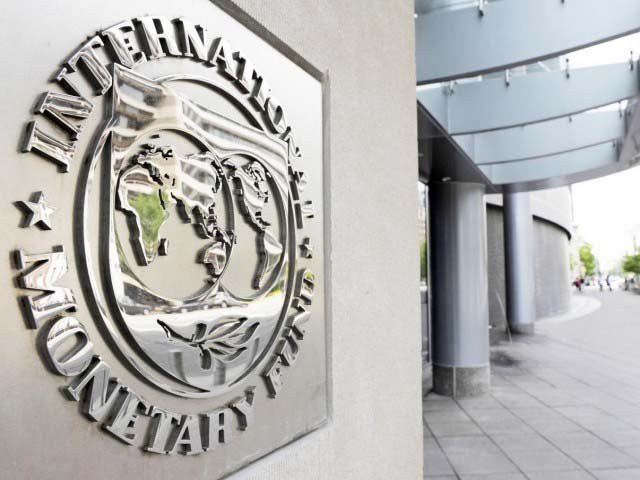IMF refuses to revise projections despite poor fiscal results
Washington-based lender keeps 2.4% low GDP growth rate forecast

PHOTO: FILE
On the conclusion of the four-day visit of its mission chief to Pakistan, Ernesto Ramirez Rigo, the Washington-based lender officially announced on Friday to keep its projections and targets unchanged.
It also acknowledged the promising start of the $6 billion bailout programme but said that “decisive implementation” was critical for its success.
Although the IMF has given a pat on the back of the government, its decision to keep unrealistic targets unchanged would keep the economic team under stress during the course of the fiscal year.
IMF rules out revising programme targets
“The near-term macroeconomic outlook is broadly unchanged from the time of the programme approval, with growth projected at 2.4 per cent in fiscal year 2019-20,” the IMF press release quoted Rigo as saying.
The 2.4% economic growth rate is lower than the 3.5% projection of the State Bank and is also equal to the county’s population growth.
The IMF Mission chief also said that the inflation was expected to decline in the coming months, while the current account was adjusting more rapidly than anticipated. In its staff level report, the IMF has projected 13% inflation rate for this fiscal year, although its press release was silent on the inflation number.
The higher than anticipated contraction in current account deficit – the sum of external receipts and payments – has adversely affected the Federal Board of Revenue’s (FBR) revenue collection at the import stage.
While discussing the possibility of resetting the over ambitious targets, the IMF once again ruled out any change in primary budget deficit and revenue collection targets.
Tough economic reforms bearing fruits, IMF told
“There has been a significant improvement in tax revenue collections, with taxes showing double-digit growth net of exporters’ refunds. Moreover, the FBR is undertaking significant steps to improve tax administration and its interface with taxpayers,” according to the IMF.
However, the reality remains that the FBR has missed its first two months relatively-low revenue collection target by Rs64 billion and its collection during the first 18 days of September was also negative 2.8%.
“Staff and the authorities have analysed the worse than expected fiscal results of fiscal year 2018-19, which were partially the result of one-off factors and should not jeopardise the ambitious fiscal targets for the ongoing financial year,” the IMF statement added.
The National Assembly Standing Committee on Finance had also taken a detailed briefing from the finance ministry about the fiscal results of the previous financial year 2018-19. It had come to the conclusion that somebody in the finance ministry “goofed up” and resultantly the ministry could not predict Rs817 billion fiscal slippages just 20 days before the close of the fiscal year.
The budget deficit in the last fiscal year stood at Rs3.444 trillion or 8.9 per cent of the gross domestic product (GDP) against the government’s revised estimates of 7.2 per cent of the GDP presented in the NA on June 11.
Pakistan likely to miss IMF's tax refund condition
The finance secretary informed the committee that the supplementary grants had substantially affected last fiscal year’s budget deficit.
The FBR’s targets went off the mark by Rs321 billion and other revenues by Rs276 billion even against the revised budget estimates. The gross receipts of the governments were lower by Rs596 billion against the revised estimates while the net receipts were short of the revised target by Rs531 billion, he continued.
Expenditures were also overshot by Rs286 billion during the last few days of the previous fiscal year.
All this has made the current fiscal year’s primary budget deficit target of 0.6% of the GDP or Rs276 billion unrealistic but the IMF has decided to keep it unchanged.
But the IMF underlined that the “domestic and international risks remain, and structural economic challenges persist”. Its press release noted that in this context, the authorities need to press ahead with their reforms agenda.
The IMF once again stated that the first review of Pakistan’s $6 billion programme will take place at the end of October, which will assess progress on end-September programme targets.
The IMF Mission chief also met Federal Minister for Economic Affairs Hammad Azhar at the Economic Affairs Division on the same day.
“In-depth discussions were held on the general economic situation of the country. The minister also appraised the IMF team about the structural reforms being carried out and the commitment of the present government to ensure economic stability in the country,” said a brief statement issued by the finance ministry.



















COMMENTS
Comments are moderated and generally will be posted if they are on-topic and not abusive.
For more information, please see our Comments FAQ